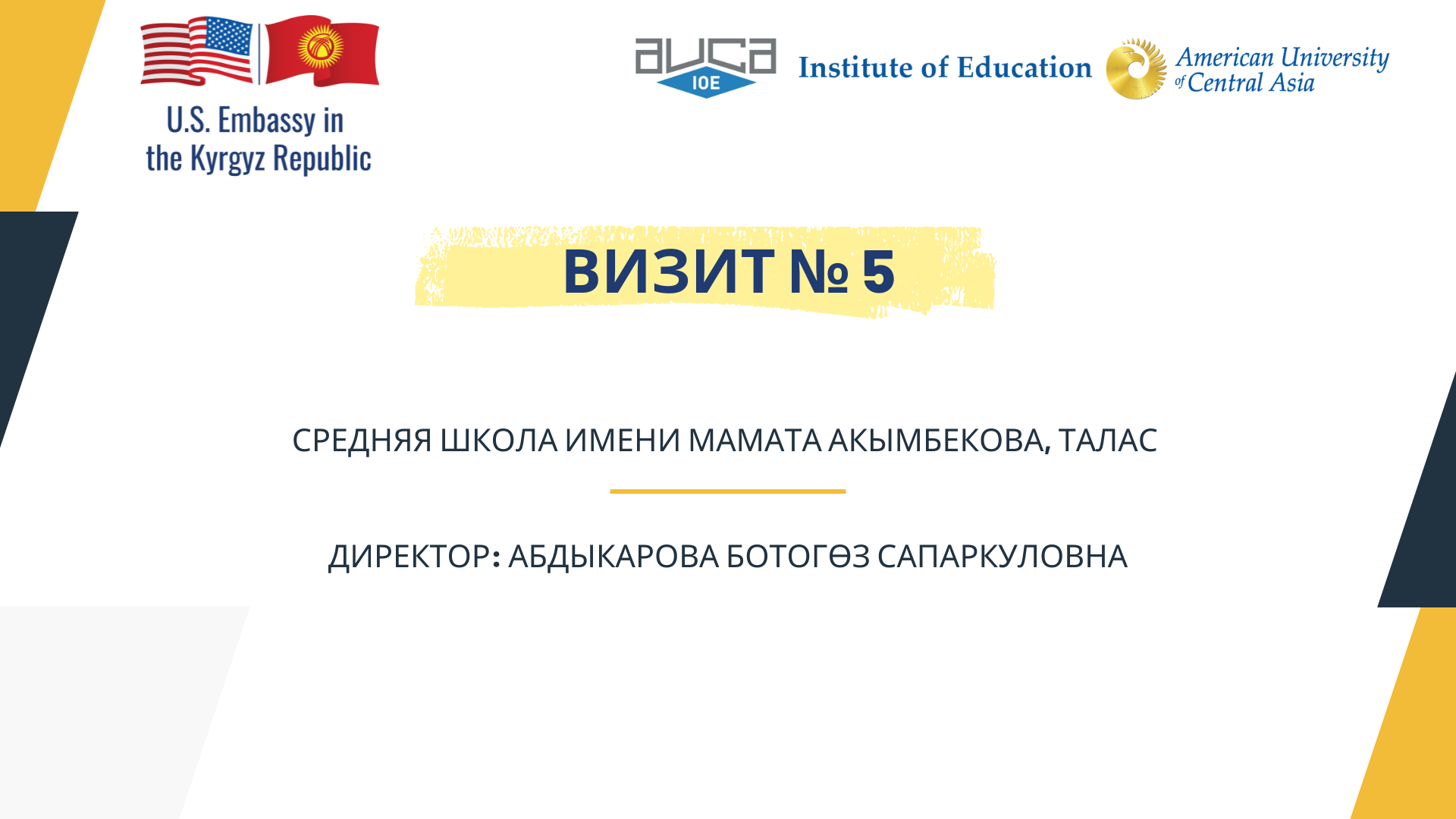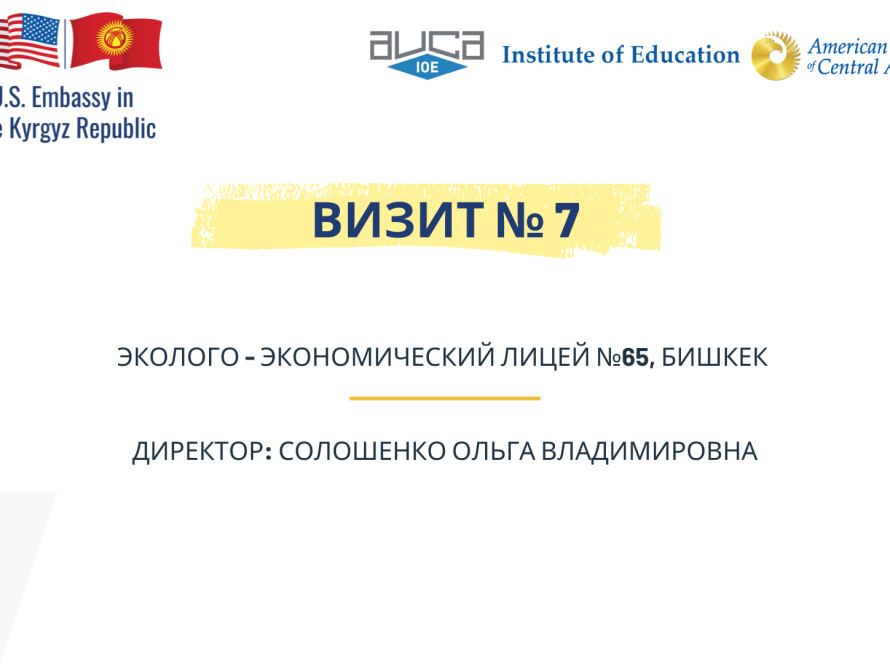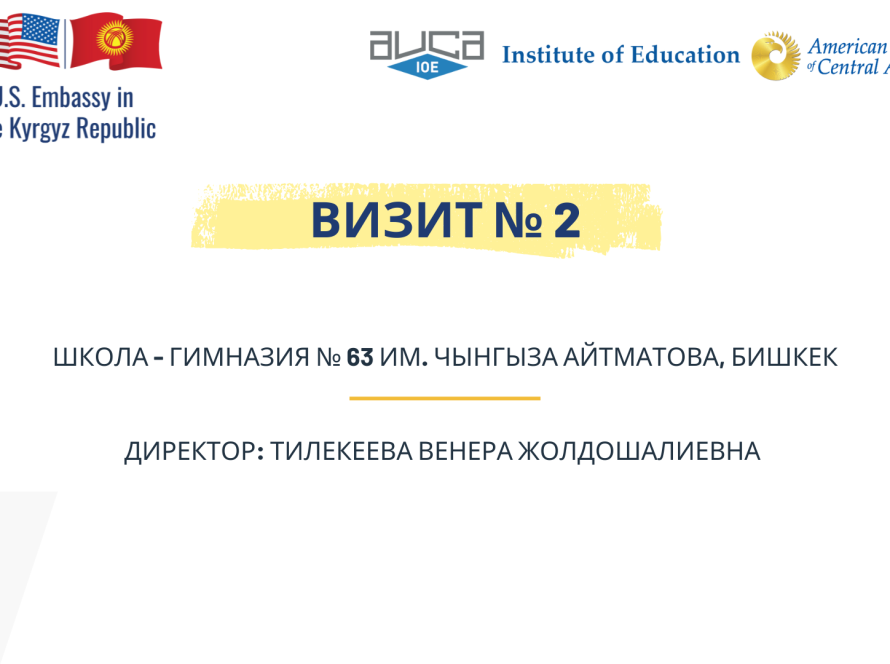Post-Visit Report: Insights from School Visits – Manifesting Learning and Collaborative Practices
Introduction
On February 14, 2025, the fifth reciprocal school visit under the FORUM 2.0 project was held at Mamat Akymbekov Secondary School in Chon Kara Buura village, Talas region. The visit was hosted by Director Botogoz Abdykarova and attended by visiting directors Olga Soloshenko, Svetlana Krasnoborodkina, Tamara Shadykanova, and Aigul Karimova, FORUM Project Manager. In addition, local directors, education officials, and school staff participated in the visit, contributing to a rich and collegial exchange of ideas and practices.
School Highlights
The day began with a welcome and school introduction, followed by a video presentation and a tour of the school premises, including classrooms, resource centers, and the school garden. Participants observed an environment marked by care, community spirit, and commitment to quality education. The visit also included reflective discussion sessions on school leadership videos presented by visiting directors and concluded with extracurricular activities and feedback collection.
The school stood out for its well-maintained infrastructure, the creative use of its land plot for generating school income, and the high level of engagement from both the school staff and the broader community. A unique feature was the integration of intergenerational mentorship, where experienced and young teachers work together to strengthen instructional practice and school culture.
Discussion Highlights and Best Practices
Several best practices were highlighted and enthusiastically discussed:
Intergenerational Mentorship and Staff Cohesion: The school has intentionally fostered collaboration between veteran and early-career teachers, creating a nurturing environment for professional growth and knowledge continuity.
Resource Innovation through School Land Use: The school operates a small orchard, with proceeds reinvested into infrastructure and teacher motivation, showcasing a sustainable, community-driven model.
Digital and Material Readiness: Participants praised the school’s strong ICT infrastructure and modern learning resources, which support both classroom learning and administrative efficiency.
Community Engagement and Sponsorship: The director has built active partnerships with parents and local sponsors, enabling investments in school improvement and extracurricular activities.
Student Voice and Enrichment: The visit included observations of student clubs (e.g., music and intellectual games), along with evidence of student recognition through awards and displays—highlighting a culture of student motivation and celebration.
Reflections from Participants
Visiting directors described the experience as highly motivating and practically useful. One participant shared:
“This visit reminded me that leadership isn’t just about solving problems—it’s about building something meaningful with the people around you.”
Directors emphasized how the visit helped them reflect on their own leadership and sparked ideas for enhancing their school’s infrastructure, community involvement, and professional learning systems.
Conclusion
The visit to Mamat Akymbekov School served as a compelling example of adaptive school leadership rooted in community partnership, creativity, and shared purpose. It deepened peer relationships, allowed directors to reflect on their own practices, and reinforced the value of reciprocal visits as a means of professional learning and system-wide improvement. The FORUM 2.0 project continues to grow as a space where directors are not only learners—but leaders of change for their regions.



